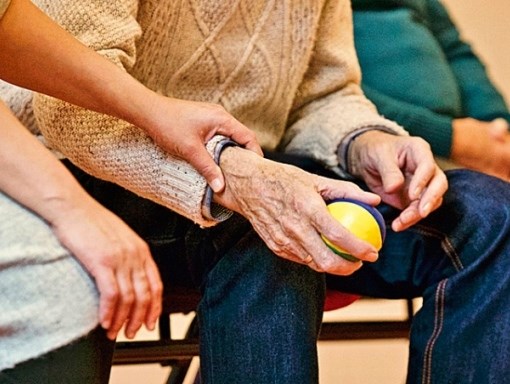Heart disease and stroke are not to be trifled with.
Heart disease is one of the leading causes of death in Canada and one the most burdensome on our health-care system. Men are generally more likely to develop heart disease, but an increasing number of women are experiencing heart disease as well. The risk of heart disease increases with age, so for seniors this is a very real issue.
The causes for both heart disease and stroke are usually attributed to a process called hardening of the arteries, or atherosclerosis. “Atherosclerosis causes fatty deposits called plaque to build up inside blood vessels called arteries. Arteries carry oxygen-rich blood throughout your body. The plaque can limit blood flow in the arteries,” according to the Health Link BC website. It also states that heart disease occurs when plaque builds up in the coronary arteries. The heart doesn't get the blood that it needs to work well. Over time, this can weaken or damage the heart. If the blood flow is blocked, it can cause a heart attack. The website states that a stroke happens when plaque builds up in the neck arteries that go to the brain. Plaque in these arteries, called carotid arteries, can limit blood flow to the brain. If the blood flow is blocked, it can cause an ischemic stroke or transient ischemic attack.
How do you know if someone is having a heart attack or stroke? Symptoms of a heart attack to watch for include: chest pain or pressure, or a strange feeling in the chest, sweating, shortness of breath, nausea or vomiting, pain, pressure, or a strange feeling in the back, neck, jaw, or upper belly, or in one or both shoulders or arms, light-headedness or sudden weakness, or a fast or irregular heartbeat.
Symptoms for stroke include: sudden numbness, tingling, weakness, or loss of movement in your face, arm, or leg, especially on only one side of your body, sudden vision changes, sudden trouble speaking, sudden confusion or trouble understanding simple statements, sudden problems with walking or balance and a sudden, severe headache that is different from past headaches. An acronym many people use is FAST, which translates to: Face – is it drooping? Arms – can you raise both? Speech – is it slurred or jumbled? Time – to call 911 right away. Of course, calling 911 right away applies to a heart attack as well – the sooner the better.
There are a number of risk factors, which individually or in combination, can lead to heart disease including: smoking, diets rich in saturated fat, physical inactivity, stress, a family history of heart disease, and being overweight.
In order to reduce your risk factors there are practical things you can do. Perhaps the most important step is to have a heart-healthy lifestyle. That means quitting smoking, getting regular exercise, eating a heart-healthy diet low in sodium, fats and sugar and maintaining a healthy weight. Other prevention methods include cutting down on alcohol and having regular medical check-ups. If you have a family history of heart disease or stroke, regular medical check-ups can determine risk factors early on. See your doctor regularly for conditions such as high blood pressure, diabetes and high cholesterol, which are risk factors for heart disease. Under a doctor’s care, conditions like these can be moderated.
If you have had a stroke or heart attack, it shouldn’t be the end of the world (so to speak) as there are organizations and programs that can help with your recovery. For example, the North Shore Stroke Recovery Centre offers therapeutic programming to help you “survive and thrive.” The recovery centre offers a program specifically for older people which they say assists in maintaining independence, improving communication and having a place to socialize. They also offer a program for caregivers where they can share experiences, information and resources. For more information call 778-340-5803 or email [email protected].
Another resource worth investigating is the Lion’\s Gate Cardiac Rehab and Cardiometabolic Program. The program is a collaboration involving Dr. Kevin McLeod and Vancouver Coastal Health and has been serving the North Shore for more than 10 years. They offer a multi-disciplinary supervised exercise and education program for people who are recovering from cardiac related interventions or who are trying to prevent cardiac and other chronic diseases. They can be reached at 604-904-0812, or go to their website at lionsgatecardiacrehab.com.
As I have been saying (preaching some might say), let’s get – and stay healthy – with a good diet, regular exercise, visits with your health-care providers and making other healthy lifestyle choices.
Margaret Coates is the co-ordinator of Lionsview Seniors’ Planning Society. Ideas for future columns are welcome. Email: [email protected]
What are your thoughts? Send us a letter via email by clicking here or post a comment below.



